<--- Back to Details
| First Page | Document Content | |
|---|---|---|
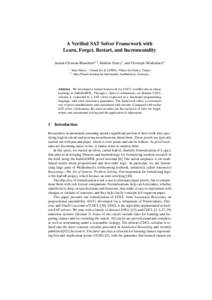 Date: 2016-06-17 09:50:06Formal methods Automated theorem proving Logic in computer science Boolean algebra Electronic design automation Conflict-Driven Clause Learning Boolean satisfiability problem Satisfiability modulo theories Clause Vampire Propositional calculus Lambda calculus |
Add to Reading List |
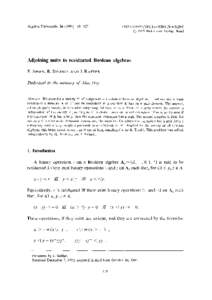 | Algebra Universalis, + 0.20/0 (~ 1995 BirkhS.user Verlag, Basel Adjoining units to residuated Boolean algebrasDocID: 1v8wA - View Document |
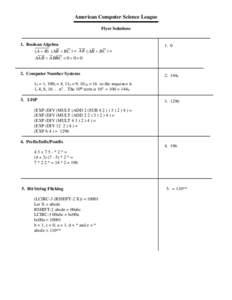 | American Computer Science League Flyer Solutions 1. Boolean Algebra ( A B) ( AB BC ) = A B ( AB BC ) = AA B A BB C 0 0 0DocID: 1uZJ8 - View Document |
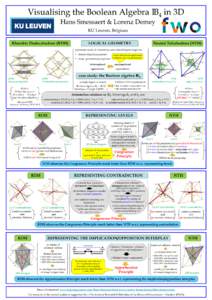 | Visualising the Boolean Algebra IB4 in 3D Hans Smessaert & Lorenz Demey KU Leuven, Belgium Rhombic Dodecahedron (RDH) LOGICAL GEOMETRYDocID: 1up5i - View Document |
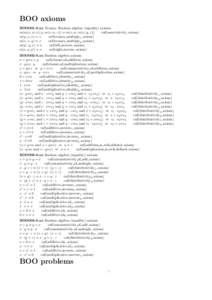 | BOO axioms BOO001-0.ax Ternary Boolean algebra (equality) axioms m(m(v, w, x), y, m(v, w, z)) = m(v, w, m(x, y, z)) cnf(associativity, axiom) m(y, x, x) = x cnf(ternary multiply1 , axiom)DocID: 1u9q0 - View Document |
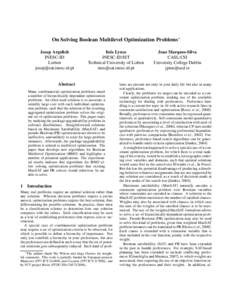 | On Solving Boolean Multilevel Optimization Problems∗ Josep Argelich INESC-ID LisbonDocID: 1rsZm - View Document |
 A Verified SAT Solver Framework with Learn, Forget, Restart, and Incrementality Jasmin Christian Blanchette1,2 , Mathias Fleury2 , and Christoph Weidenbach2 1 2
A Verified SAT Solver Framework with Learn, Forget, Restart, and Incrementality Jasmin Christian Blanchette1,2 , Mathias Fleury2 , and Christoph Weidenbach2 1 2